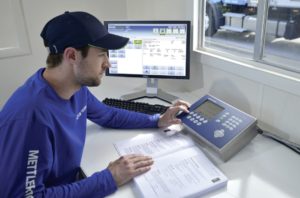The Cost of Automation? It’s Lower Than You Think

The world is moving towards automated production but what exactly will the cost of automation be? The global spend on automation increased more than 140% to $155 billion dollars compared to just $65 billion in 2000 and is estimated to increase to over $300 Billion by 2020. It’s easy to see why that trend will continue to increase. More efficient processes, increasing throughput, decreasing labor costs, improved quality control, and the reduction of waste are among the benefits of automating production environments. Upfront cost has been a reluctance for some small to medium-sized companies to invest in automation, but the return on investment makes the true cost of automation increasingly attainable. Here is how much automation really costs:
1) Accelerating Productivity Gains
Productivity gains are one of the main reasons facilities decide to automate processes. It is estimated that $810 + billion dollars or more will be saved in reduced time to market for products. Over the next 50 years, adoption of automation on a global basis is estimated to increase potential productivity as much as 0.8% to 1.4% annually. Increased asset utilization, waste elimination, greater labor efficiencies and increase productivity will save manufacturing billions globally per year. Think about how much productivity you will gain from simple automation tactics and better data management.
2) Elimination of Data Entry errors:
Data collection is one of the most obvious reasons to automate processes. However, any data collection is useless if you cannot trust the accuracy of the information. Without accurate data, problems can be hiding in what is conceived as a high performing process. Are your employees walking around with clipboards and manually entering information into a computer? Automation eliminates data entry errors by taking human prone entry errors out of the equation. Mistakes such as typos, missed keys, and varying data entry styles will become a thing of the past. Data becomes actionable and more accurate than ever before. Advancements in technology such as tablets with user prompting for manual data entry or complete automated data management will give you actionable data to make informed decisions about your processes.
3) Skyrocketing Quality
Have you ever had to throw away a batch? Do you have customers service issues with customers not receiving all of the parts in the box? Automation improves quality by eliminating the possibility of errors in the production. Mechanical systems can ensure that the same product is made the same way over and over again. Automation doesn’t always have to be systems that have no human input. Automation could be more intelligent user prompting by weighing terminals or incorporating verification scales into the facility. Both of these tactics skyrocket your quality assurance.
It’s easy to see how investing in automation now can save you money while getting ahead of the competition. So instead of asking yourself, what is the cost of automation, ask how much does automation save?
Request a free asset evaluation and let us help determine how you can Weigh Better®
*Statistics Source: Harris Williams & Co. Spring 2017 Automation Market Report
